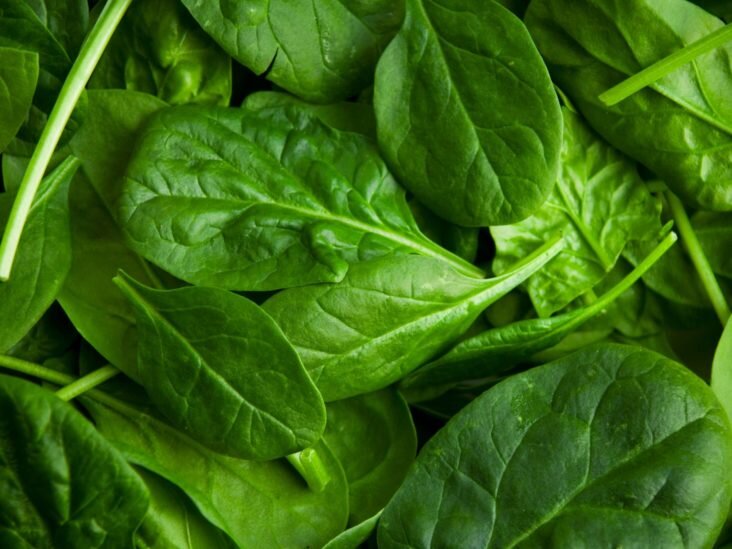Spinach Nutrition Facts and Health Benefits
Spinach (Spinacia oleracea) is a leafy green vegetable that originated in Persia.
Did you know? It is related to beets and quinoa. What’s more, it’s considered very healthy, as it’s loaded with nutrients and antioxidants.
Eating spinach may benefit eye health, reduce oxidative stress, help prevent cancer, and reduce blood pressure levels.
There are many ways to prepare spinach. You can buy it canned or fresh and eat it cooked or raw. It’s delicious either on its own or in other dishes.
This article tells you everything you need to know about spinach.
Nutrition facts
The nutrition facts for 100 grams of raw spinach are (1Trusted Source):
Calories: 23
Water: 91%
Protein: 2.9 grams
Carbs: 3.6 grams
Sugar: 0.4 grams
Fiber: 2.2 grams
Fat: 0.4 grams
Vitamins and minerals
Spinach is an excellent source of many vitamins and minerals, including (3):
Vitamin A. Spinach is high in carotenoids, which your body can turn into vitamin A.
Vitamin C. This vitamin is a powerful antioxidant that promotes skin health and immune function.
Vitamin K1. This vitamin is essential for blood clotting. Notably, one spinach leaf contains over half of your daily needs.
Folic acid. Also known as folate or vitamin B9, this compound is vital for pregnant women and essential for normal cellular function and tissue growth.
Iron. Spinach is an excellent source of this essential mineral. Iron helps create hemoglobin, which brings oxygen to your body’s tissues.
Calcium. This mineral is essential for bone health and a crucial signaling molecule for your nervous system, heart, and muscles.


